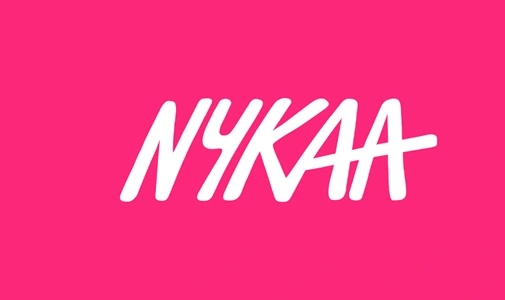Nykaa, founded in 2012 by Falguni Nayar, has transformed the beauty and personal care (BPC) industry in India, becoming a household name among urban consumers. What started as an e-commerce platform for beauty products has now expanded into a multi-brand retail giant, offering fashion, wellness, and lifestyle products. With its successful IPO in 2021, Nykaa became one of India’s first profitable e-commerce companies to go public, marking a milestone for the country’s digital economy. This SWOT (Strengths, Weaknesses, Opportunities, Threats) analysis explores Nykaa’s market position and future outlook in an increasingly competitive and fast-evolving industry.

Strengths
1. Strong Brand Equity and Customer Loyalty:
Nykaa has established itself as one of India’s most trusted and recognized beauty and lifestyle brands. By curating a wide range of premium international and Indian brands, Nykaa has positioned itself as a reliable platform for beauty and personal care products. With a loyal customer base, especially among millennials and Gen Z in urban areas, Nykaa’s brand equity provides it with a significant competitive advantage in a crowded market.
2. Omnichannel Presence:
Nykaa’s unique omnichannel approach is a major strength. Unlike many e-commerce brands, Nykaa has successfully established physical stores in key metro cities and high-footfall shopping areas, such as malls. The combination of online and offline channels allows Nykaa to reach a broad customer base, ensuring better brand visibility and increasing customer engagement. This strategy also offers customers the option to explore products physically, which is particularly advantageous in the beauty segment, where customers often prefer in-store experiences.
3. Extensive Product Portfolio and Private Labels:
Nykaa’s wide-ranging product portfolio includes beauty, personal care, wellness, and fashion. The platform offers over 4,000 brands, including top global names and exclusive partnerships. Additionally, Nykaa has launched its own private-label brands, including Nykaa Cosmetics, Nykaa Naturals, and Kay Beauty, which cater to different price points and customer needs. These private labels have higher margins than third-party products, contributing significantly to Nykaa’s profitability.
4. Data-Driven Marketing and Personalization:
Nykaa’s data-driven approach to marketing and customer personalization has been instrumental in building a loyal customer base. By leveraging customer data, Nykaa provides personalized recommendations, targeted promotions, and customized beauty advice. Its focus on influencer marketing and social media engagement also helps it maintain a strong digital presence, enhancing brand loyalty and keeping Nykaa relevant to younger audiences.
Weaknesses
1. Heavy Reliance on Urban Markets:
Nykaa’s primary customer base is concentrated in metro cities and urban areas, where awareness and demand for premium beauty products are higher. While this focus has been profitable, it also limits Nykaa’s reach to a broader audience in Tier 2 and Tier 3 cities. Expanding into these markets, where price sensitivity is higher, remains a challenge, particularly as competitors are already making inroads into smaller towns with affordable offerings.
2. Dependence on the Beauty and Personal Care Segment:
Although Nykaa has ventured into fashion and wellness, the company’s core revenue still comes from beauty and personal care products. This dependence exposes it to risks if there is a shift in consumer preferences or an economic downturn affecting discretionary spending. While the beauty segment remains lucrative, Nykaa’s limited diversification could hinder its ability to withstand market fluctuations.
3. High Marketing and Customer Acquisition Costs:
The beauty e-commerce market in India is highly competitive, and Nykaa faces high customer acquisition and retention costs. The need to maintain a strong digital presence, invest in influencer marketing, and offer discounts to attract new users increases operational expenses. These costs impact Nykaa’s profit margins, and sustaining such spending may become challenging as competition intensifies.
4. Limited Success in the Fashion Segment:
Nykaa entered the fashion segment in 2018 with Nykaa Fashion, but it has yet to establish a strong presence in this space compared to beauty and personal care. The fashion market in India is crowded, with established players like Myntra, Ajio, and Amazon already dominating. Nykaa’s late entry and lack of differentiation have limited its growth in the fashion segment, which remains a relatively small portion of its revenue.
Opportunities
1. Expansion into Tier 2 and Tier 3 Markets:
As internet penetration and digital adoption rise in India, Tier 2 and Tier 3 cities offer substantial growth potential for Nykaa. With increasing awareness of beauty and personal care products among consumers in smaller towns, Nykaa can expand its reach by offering affordable options, vernacular marketing, and localized campaigns. By tapping into these underserved markets, Nykaa can grow its customer base and diversify its revenue streams.
2. Rising Demand for Natural and Sustainable Products:
Consumers are increasingly seeking eco-friendly, cruelty-free, and natural beauty products, a trend driven by health awareness and environmental concerns. Nykaa can capitalize on this trend by expanding its line of sustainable and organic beauty products. Its private label, Nykaa Naturals, already aligns with this demand, and expanding this line could attract environmentally conscious consumers, particularly among millennials and Gen Z.
3. Growth in Digital Healthcare and Wellness:
The wellness industry in India is growing rapidly, with demand for health supplements, nutraceuticals, and wellness products on the rise. Nykaa could explore this space further by offering health and wellness products, including vitamins, supplements, and fitness-related items. With increasing consumer interest in holistic well-being, expanding its wellness category can provide Nykaa with a lucrative new revenue stream.
4. Strengthening Private Labels and Exclusive Brand Partnerships:
Nykaa’s private labels have been well-received, and the company can further enhance its brand portfolio by introducing more exclusive products and collaborations. Expanding private labels in both beauty and fashion segments allows Nykaa to increase profit margins and differentiate itself from competitors. Exclusive brand partnerships with international brands can also attract premium customers, reinforcing Nykaa’s position as a go-to platform for high-quality products.
Threats
1. Intense Competition from E-Commerce Giants and New Entrants:
Nykaa faces stiff competition from both established e-commerce giants like Amazon and Flipkart, which have strong distribution networks, and specialized platforms like Purplle, which offer similar beauty and personal care products. This competition can lead to price wars, margin pressure, and the need for increased spending on customer retention. Additionally, new entrants offering competitive prices or unique features pose a continuous threat.
2. Dependence on Discounting and Promotions:
To attract new customers and retain existing ones, Nykaa frequently relies on discounts, cashback offers, and promotional campaigns. While effective, this strategy affects profit margins and could become unsustainable in the long run. If consumers become accustomed to frequent discounts, it may be challenging for Nykaa to maintain pricing power, impacting its bottom line.
3. Regulatory and Compliance Challenges:
As Nykaa operates in the beauty, wellness, and fashion sectors, it is subject to various regulatory requirements related to product quality, safety, labeling, and advertising standards. Any non-compliance or regulatory change could impact Nykaa’s operations and reputation. Furthermore, as it expands into health and wellness, the regulatory landscape will become even more complex, requiring strict adherence to health and safety guidelines.
4. Supply Chain Vulnerabilities and Dependency on Imports:
A significant portion of Nykaa’s product portfolio includes imported international brands. This reliance exposes Nykaa to supply chain disruptions, currency fluctuations, and import tariffs, which could increase costs and affect product availability. The COVID-19 pandemic highlighted the fragility of global supply chains, and any future disruptions could impact Nykaa’s ability to meet demand consistently.
Future Outlook
Nykaa’s future in India’s beauty and lifestyle market looks promising, but the company must adapt to emerging trends and navigate challenges to sustain growth. The beauty and personal care market in India is projected to grow significantly, driven by rising disposable incomes, urbanization, and evolving consumer preferences. Nykaa’s strong brand presence, omnichannel strategy, and wide product range position it well to capture this growth.
Expanding its presence in Tier 2 and Tier 3 cities will be critical to Nykaa’s next phase of growth. These regions offer a relatively untapped market with rising demand for affordable and mid-range products. To succeed, Nykaa will need to localize its marketing efforts, explore vernacular advertising, and possibly introduce products tailored to the preferences and budgets of these consumers.
Nykaa’s focus on sustainable and eco-friendly products aligns with growing consumer demand for ethical and environmentally conscious brands. By expanding its range of natural, organic, and cruelty-free products, Nykaa can strengthen its position among socially conscious customers. Investing in its private labels and exclusive brand collaborations will also enable Nykaa to enhance profitability and differentiate itself from competitors.
However, achieving long-term profitability and scaling sustainably will require Nykaa to manage its customer acquisition costs effectively and reduce dependency on heavy discounting. The company must also continue to innovate in the digital space, offering a seamless and engaging user experience to maintain customer loyalty. As the company expands into new product categories and regions, regulatory compliance and supply chain management will become increasingly critical.
In conclusion, Nykaa’s strong brand, omnichannel approach, and wide product range provide a robust foundation for future growth. By addressing its weaknesses and capitalizing on opportunities in health, wellness, and sustainability, Nykaa can continue to lead India’s beauty and lifestyle market. With the right strategic focus, Nykaa has the potential to not only sustain its competitive edge but also become a globally recognized beauty and lifestyle brand from India.

